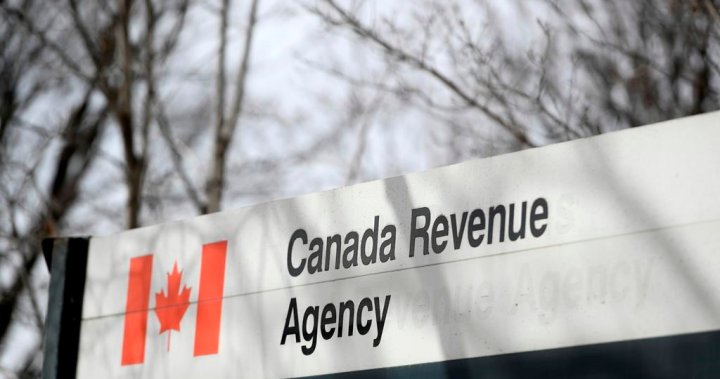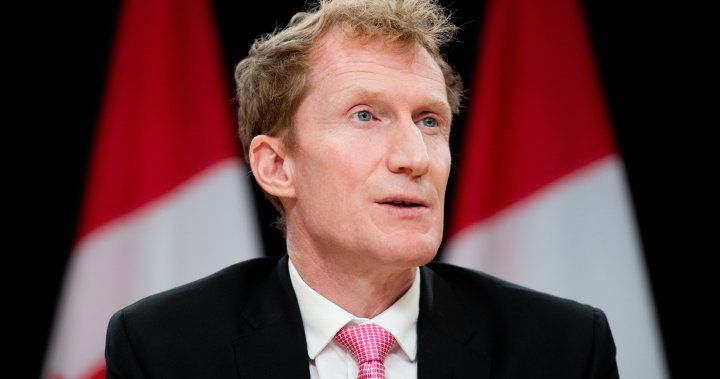Peter Corry from Alberta says he recently paid $700 for an accountant to file his bare trust tax returns, out of fear of a penalty for missing the April 2 deadline.
However, following the Canada Revenue Agency’s (CRA) announcement last week that it is retracting the reporting requirement, Corry says he feels the money was spent for nothing.
“For being a responsible citizen and filing we lose money by the CRA changing the rules 4 days before the deadline! How do I get that money back?” Corry said in an email to Global News.
Like many Canadians who recently became aware of the new bare trust reporting requirement this year, Corry made quick arrangements to file as quickly as possible. That meant spending hundreds of dollars in accounting services and tax preparation fees.
Franco Terrazzano, federal director of the Canadian Taxpayers Federation (CTF), says Canadians have “every right to be ticked off with the CRA.”
“It’s almost like the CRA is going out of its way to make life harder for Canadians. Like, what are they doing waiting until the very last minute to announce these rule changes?” Terrazzano told Global News.
“The question is, is anyone from the CRA going to be held accountable for this? Because they should.”
On March 28, the CRA announced that Canadians with bare trust arrangements won’t be required to file a T3 tax return and Schedule 15 unless the agency makes a direct request for these filings. The change came just days before the deadline to file.
The CRA said the decision was made “in recognition that the new reporting requirements for bare trusts have had an unintended impact on Canadians.”
The requirement to file a return for bare trust arrangements was newly introduced by the CRA this year, but many Canadians were likely unaware of its existence or even that they may be part of such an arrangement.
Last-minute change puts accountants in tough position
A bare trust refers to the legal ownership of a property or account that does not match who is entitled to it. The trustee has no decision-making power over the beneficiary’s assets and only acts on their instructions.
Bare trust arrangements are very popular because of their practicality. The most common examples are putting funds into an account for an elderly parent or for a child to hold birthday money.
Financial news and insights
delivered to your email every Saturday.
Missing the deadline would have meant many Canadians could face some hefty penalties, notably a gross negligence fee with no maximum.
However, prior to removing the bare trust filing requirements completely, the CRA waived the penalties to ease Canadians’ confusion and alarm over the new rules.
Brendan McCann, a partner of the Toronto-based accounting firm McCann & Associates LLP, says many clients took the penalty relief as an opportunity to work with their accountants to file their returns past the deadline, unrushed.
While the CRA’s ultimate decision to retract the reporting requirements entirely was met with relief for clients who had not yet filed, McCann says many accountants were put in an awkward position.
“From an accountant’s point of view, we’re probably not going to bill our clients for that time spent,” he told Global News.
McCann says that in the months since the CRA announced the new reporting rules, accountants have spent “hours and hours” researching bare trust arrangements, discussing the requirements with clients and helping them navigate all the needed items to file.
Canadians were billed for the returns that were filed, McCann says, but accountants who hadn’t filed before the CRA’s latest announcement likely won’t get paid for their time and labour.
“We can’t go back and re-acquire that time that was spent, especially in March. We just have to move forward,” McCann said.

He says he hopes Canada’s Department of Finance and the CRA give Canadians more notice next year before making changes to tax reporting rules.
“Hopefully (they) will provide Canadians with proper guidance for 2024 in a more timely manner… so things are more organized both on our end and on the clients’, instead of at the 11th hour finding out what is required, because it’s that uncertainty that’s upsetting to a lot of people,” he said.
McCann says the consequences both Canadian taxpayers and accountants are facing from the last-minute rule change “shouldn’t have been difficult for (the CRA) to see coming.”
“On both sides, there’s a lot of angry people right now,” he said. “Whether someone is on title of their parents’ home, or they’ve guaranteed a son or daughter’s mortgage, (the CRA) should have known that there were going to be thousands and thousands of people affected, and they should have been prepared for the criticism.”
Could you receive compensation from the CRA?
When asked for a comment from Global News about the recent feedback, the CRA reiterated its message from its March 28 announcement.
“Over the coming months, the CRA will work with the Department of Finance to further clarify its guidance on this filing requirement. The CRA will communicate with Canadians as further information becomes available,” the agency said in an email to Global News Friday.
The CRA said that after removing the gross negligence penalty this year, stakeholders “continued to express concerns with respect to those enhanced filing requirements.”
“In particular, many taxpayers and representatives sought further clarification as to determining whether there is a trust in specific fact situations.”
John Oakey, vice president of taxation with Chartered Professional Accountants (CPA) Canada, says his organization has notified the CRA about the frustration regarding the last-minute change but he doesn’t expect any reimbursements to arise.
“From a compensation point of view, the CRA is not going to be going around compensating anyone for this,” Oakey told Global News.
Despite the criticisms targeted at the CRA, Oakey says it’s important to realize that there are multiple players behind the decision that are also deserving of the blame.
“There’s a lot more going on behind the scenes than we’re aware of. So I don’t know if we can put all the blame directly on Canada Revenue Agency for this late announcement,” he said.
Oakey says any Canadians who believe they’ve been affected by the late rule change should still take action.
“For any individuals that have incurred costs trying to comply with the rules, the best thing for them to do is reach out to their member of Parliament and just express their frustration with the system,” he said. “That’s the best avenue that they have in order to express their concerns.”





